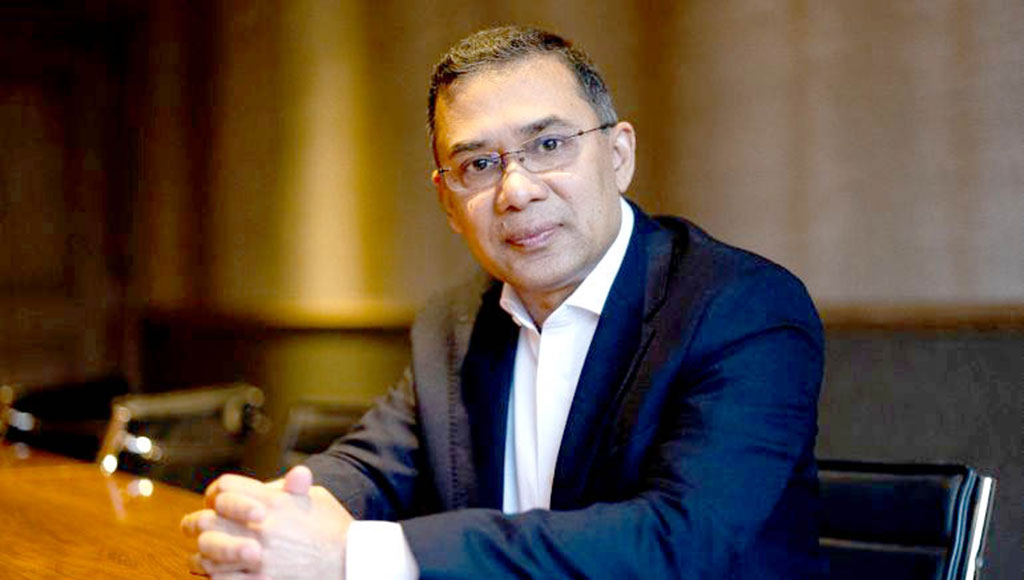Tarique Rahman, the exiled acting chairman of the BNP, is widely considered the party’s candidate for the premiership should it return to power in the next general election—a possibility that recent opinion polls suggest is increasingly within reach.
There is no dispute over Tarique’s Bangladeshi citizenship by birth. As the eldest son of former President Ziaur Rahman and ex-Prime Minister Khaleda Zia, he has played a prominent, if controversial, role in the country’s political evolution.
However, his departure from Bangladesh in 2008, following his release from detention under a caretaker government, and his continued residence in the United Kingdom raise critical legal and constitutional questions—questions that remain unanswered to this day.
The most pressing among them is Tarique Rahman’s current immigration status in the United Kingdom.
THE SILENCE IS NOT SUSTAINABLE
Tarique Rahman reportedly arrived in the UK in 2008 on medical grounds and subsequently sought political asylum. The request would not have been unreasonable at the time. He had just been released from custody after alleged torture and was facing a raft of politically sensitive charges.
The Awami League-led administration pursued several cases against him, many of which were widely viewed as politically motivated. In such contexts, the UK Home Office generally errs on the side of protecting individuals who might face persecution upon return.
But UK refugee status is not a permanent arrangement. It is subject to review and expiration.
Under British immigration law, an individual granted asylum is initially provided with Limited Leave to Remain (LLR), usually for five years. Before that period ends, the individual must apply for Indefinite Leave to Remain (ILR)—a form of permanent residency. Following this, many go on to apply for British citizenship, a process that includes swearing an oath of allegiance to the Crown.
The UK government does not allow indefinite refugee status without progressing toward permanent settlement. If Tarique Rahman has continued to live in Britain for 15 years—well beyond the statutory LLR period—he must have either applied for ILR or pursued naturalisation. That would entail formal recognition of allegiance to the United Kingdom, with all the political and constitutional implications such status carries.
WHY THIS MATTERS FOR BANGLADESH
This question has taken on new constitutional urgency in light of the 2025 recommendations by the Constitutional Reform Commission (CRC). The Commission’s report calls for sweeping changes to disqualify anyone with foreign nationality, permanent residency, or declared allegiance to a foreign state from holding any constitutional office in Bangladesh.
Key CRC recommendations include:
1. Explicit disqualification for anyone holding foreign passports, permanent residency rights (e.g., ILR, Green Card), or enjoying the protection of another state.
2. No exemption for former foreign nationals: Even if someone has renounced foreign citizenship, they would remain ineligible for a specified cooling-off period.
3. Immediate removal if foreign status is acquired during tenure.
4. Universal applicability: These rules would apply not only to MPs but also to ministers, judges, the President, Election Commissioners, Anti-Corruption Commissioners, and top civil servants
The report justifies these measures on the grounds of national sovereignty, democratic legitimacy, and institutional integrity. It argues that foreign allegiance—either formal (through citizenship) or implicit (through residency rights)—introduces unacceptable risks of external influence, divided loyalty, and erosion of public trust.
A BROADER FAMILY QUESTION
Tarique Rahman is not the only member of his household facing this constitutional conundrum. His wife, Dr Zubaida Rahman, a civil servant-turned-political aspirant, had been also residing in the United Kingdom until her recent return. If she holds similar immigration or residency status—whether ILR or UK citizenship—the same constitutional and political questions apply to her ambitions.
If Tarique continues to hold refugee status, that implies he considers Bangladesh unsafe to return to. Yet he seeks to govern the same state he claims persecutes him. This cognitive dissonance cannot coexist with credible leadership
Should BNP come to power and seek to nominate her for high office, the public has a right to know whether her legal allegiance lies solely with Bangladesh or is split across jurisdictions.
THE CONSTITUTIONAL STAKES
Article 66(2)(C) of the Bangladesh Constitution already disqualifies from parliamentary membership any individual who has “acquired foreign citizenship or declared allegiance to a foreign state.” While the language leaves room for interpretation, the CRC proposals would close all such ambiguities and introduce clear legal standards.
If the Rahmans hold British nationality or even ILR, they would be constitutionally ineligible for public office under the proposed reforms. Even under current provisions, their eligibility is—at the very least—open to serious challenge.
Furthermore, there is a troubling contradiction at the heart of the matter. If Tarique continues to hold refugee status, that implies he considers Bangladesh unsafe to return to. Yet he seeks to govern the same state he claims persecutes him. This cognitive dissonance cannot coexist with credible leadership.
A CALL FOR TRANSPARENCY
This is not a partisan argument. It is not an attempt to exclude a political leader through administrative or technical means. Tarique Rahman has a right to participate in political life—but the public has an equal right to transparency.
Before presenting himself as a prospective prime minister, Tarique must answer three straightforward questions:
1. Has he acquired British citizenship?
2. If he didn’t, does he currently hold Indefinite Leave to Remain in the UK?
3. Has Mrs Rahman done so?
Until these questions are publicly addressed, any claim to national leadership will remain legally fraught and ethically dubious.
For a country grappling with issues of sovereignty, elite detachment, and institutional trust, clarity on matters of foreign allegiance is not optional.
It is foundational.
Adil Mahmood is a former journalist


